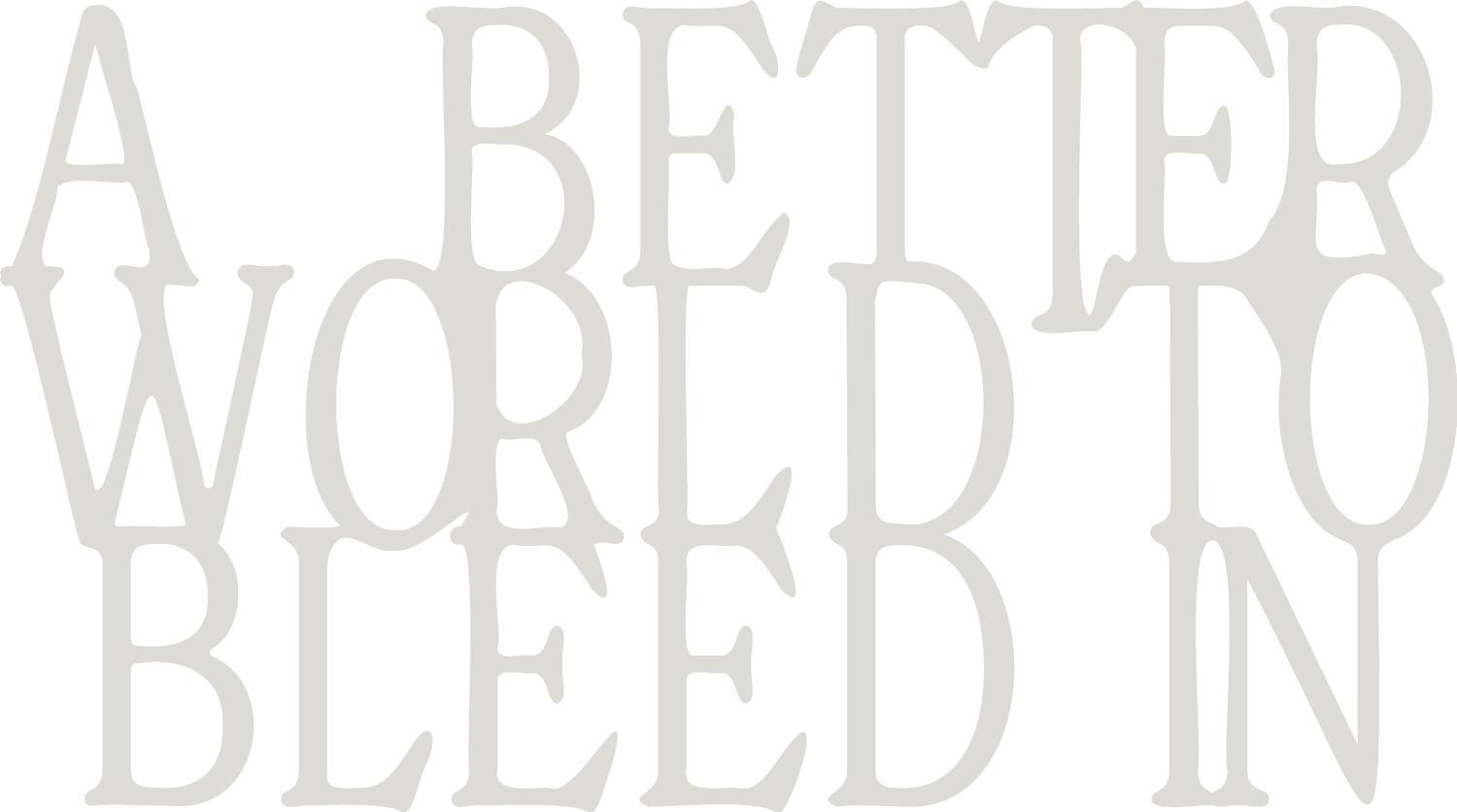The world feels better when we bleed better
Making the world a better place to bleed in is a mission that begins with women’s reproductive health, but does not end there. I believe that making the world a better place to bleed in, is central to making the world a better place for every one.
I’m sure you know this: our global civilisation at large, is not necessarily the easiest place for those regarded as women. From the gender pay gap to rampant gender based violence, to excruciating period pain dismissed by doctors due to lack of awareness, racial misogyny, colonial period poverty and harmful beauty standards… We know that the world can be a dangerous and unfair place for a woman.
The world is not designed with women in mind. The dominant social and economic system as we know it, capitalism, was made by and for wealthy men. The tenants of capitalism have infused their way into our collective psyche to the point that they now feel ‘natural’: division of peoples, violent capturing and stealing of land, medicine and ways of knowing, and the creation of resource scarcity.
The female body is the battle ground on which the creation of such a system was fought out. It’s far more complicated than a four pointed list, but here’s my attempt to explain the roadmap to where we are now:
In creating divisions, to justify colonialism and slavery, the European two gender system was reinforced in nearly every corner of the world during the transition to capitalism in the 15th century. There were men: who were to be the cogs of the capitalist machine, and there were women: those who were relegated to the reproduction of the work force.
In order to maintain the workforce, which threatened to diminish at the beginning of capitalism due to the dire living standards and massacre of indigenous peoples in the colonies, women’s reproductive systems were seized as public property. Laws were introduced to ensure that abortion and contraception were no longer matters of the individual (Federici, 2005).
As land, medicine and ways of knowing were stolen and enclosed, a link between nature and women grew, that enabled non consensual exploration of both land and female bodies. Nature, and women, became equal parts of the ‘wild unchartered’ that needed ‘taming’ and ‘conquering’ (Griffin, 1978).
In creating resource scarcity through enclosing common land, taking away livelihoods that fed mouths, and enslavement, ‘work’ became the only way to survive. In the 1900s, women gained traction in being allowed back into the workforce, so that they could create livelihoods independently from men. Thus second wave feminism was born and acknowledging any difference between men and women became taboo, in the fear that it would justify the subjugation and exclusion of women.
(to learn more about this, read Caliban & The Witch by Silvia Federici)
It is no wonder so many of us see our menstrual cycle as a burden. The truth of our menstrual cycles, the power they hold, the great responsibility of being the keepers of cycles, is not the common story woven into our blood.
I am suggesting that part of our deficiency in relating to our female bodies, is thanks to this social environment.
The main thing I hear in my practice is this: “I just want to understand my body.”
I think this speaks to the severance we have experienced, from our cyclical nature, from our power. I think this speaks to the great disservice medicine and education has done us when it comes to our natural processes - bleeding, ovulating, birthing, nurturing, menopause. The great misinformation that has led to a lack of awareness, that in turn has translated into a feeling of greater lack. So many of us feel ashamed, not good enough, dirty, broken, lacking, in relation to our bodies.
But it doesn’t have to be this way.
All over the world good news comes: period poverty taken seriously, a movie based on a menstruating teenager wins an award, medical studies into menstrual cycle conditions get funded. More and more of us wake up to the lie and realise: we are not wrong, the world has been.
We educate and uplift one another, we share our stories and shed our shame. We change our language, not hiding our blood any longer. We advocate for ourselves and don’t settle for less than the vibrancy we know we can feel. We feel deeply, how our bodies are related to the earth, and we no longer feel bad about that. We learn to draw our power from inside, tracing new but very old pathways in the way of wise women: seeing no distinction between how we treat ourselves and how we walk on our land. We cycle, tasting every corner of the spiral, dancing through winter, spring, summer and autumn, as we rotate.
We make the world a better place to bleed in. For ourselves, for each other, and for those who are yet to come.
Go well,
Isobel

